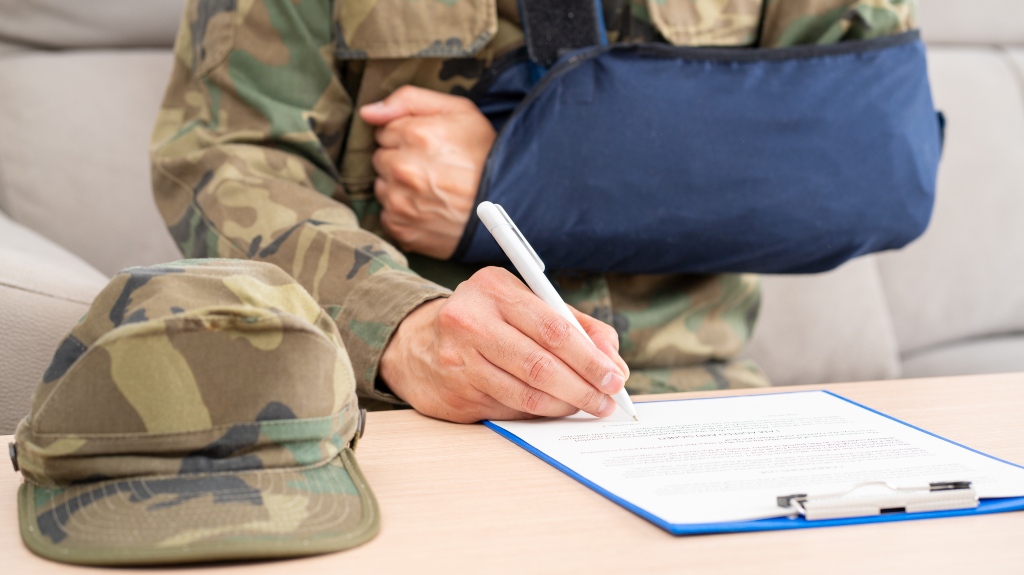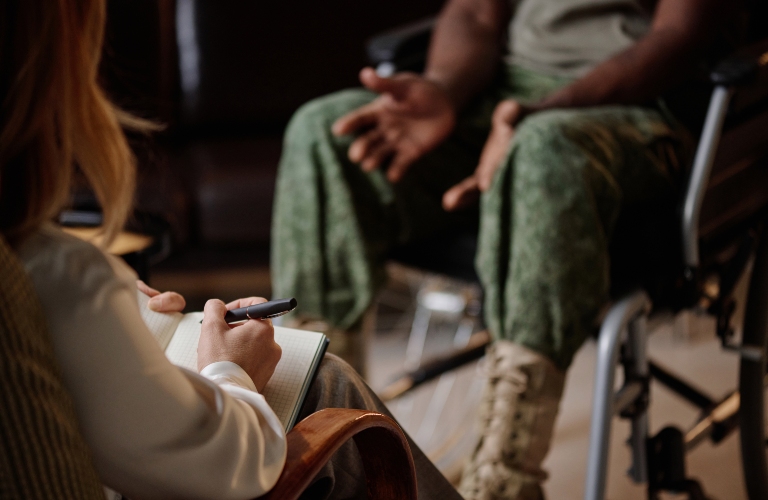
Understanding Service-Connected vs. Non-Service-Connected Disabilities
Navigating the US Department of Veterans Affairs (VA) benefits system can be like deciphering a complicated code. One of the most important, but often misunderstood, differences is between service-connected and non-service connected disabilities. Your eligibility for monthly payments, healthcare and other essential benefits depend on this very distinction.
At Veterans Benefits Law Group, PLLC, we firmly believe that knowledge is power. By understanding these core concepts, you will take the first step towards building a strong case for the benefits you deserve.
What is a Service-Connected Disability?
A service-connected disability is an injury or illness that was incurred or made worse during active military service. The key principle is causation: you must be able to prove a clear connection between your current disability and an event, injury, illness, or worsening that occurred while serving.
The VA recognizes several ways to establish this connection:
Direct Service Connection
This is the simplest type. Your disability is directly related to your military service. Examples include injury to the knee during training, hearing loss caused by artillery fire, or PTSD resulting from a traumatic event during combat.
Aggravated Service Connection
If you had a pre-existing medical condition before joining the military, and your service made it worse, you may be eligible for benefits due to aggravation.
Secondary Service Connection
This happens when a service-connected disability causes or worsens a new, unrelated disability. For example, a service-connected knee injury may lead to severe arthritis and back pain due to a change in walking pattern. The secondary condition can be traced back to the original service-connected one.
Presumptive Service Connection
Due to the unique risks associated with military service, the Veterans Administration (VA) assumes that certain disabilities are caused by service in specific locations or during specific time periods for veterans. This is especially true for conditions related to exposure to Agent Orange, Gulf War Syndrome, exposure to burn pits, and other environmental hazards.
The legal basis for service-connected disability compensation can be found in Title 38 of the United States Code, Section 1110. This section provides authority to grant compensation for disabilities arising from personal injury or illness contracted while on duty.
What is a Non-Service-Connected Disability?
A non-service-connected disability is a medical condition that is not linked to your military service. Having a disability alone does not automatically qualify you for compensation from the VA. The condition must not have an established connection to your time in the military.

However, this does not mean that the VA does not offer support for veterans with disabilities who are not service-connected. In this case, the main benefit available is VA healthcare. Veterans may be eligible to enroll in the VA health care system and receive medical treatment for any health condition, regardless of whether it is related to their military service. Eligibility for this care is often determined by other factors, such as income or whether a veteran has a specific eligibility factor, such as a Purple Heart.
It is important to understand that receiving medical care for a non-service-connected condition is different from receiving compensation for disability associated with it. You will not receive monthly payments from the Veterans Administration for a non-service-connected disability.
You Don’t Have to Navigate This Alone
Proving service connection can be challenging, but it requires a strategic approach and convincing evidence. You may think that a certain condition is not related to your service, but in fact, it could be a secondary or presumed condition, which could open the door to benefits that you might not have known about.
At Veterans Benefits Law Group, PLLC, we take pride in our dedication to fighting for the rights of our veterans. Our experienced team of legal professionals understands the complexities of the VA benefits system and has years of experience helping veterans nationwide.
If your claim has been denied or you are uncertain about how to prove that your condition is related to service, we can help you build a strong case. Please contact us today to schedule a free consultation.
Share This Story
Interested in this topic? Your friends might be too! Consider sharing this story to your social media channels and look like a smart, sophisticated resource of information.

